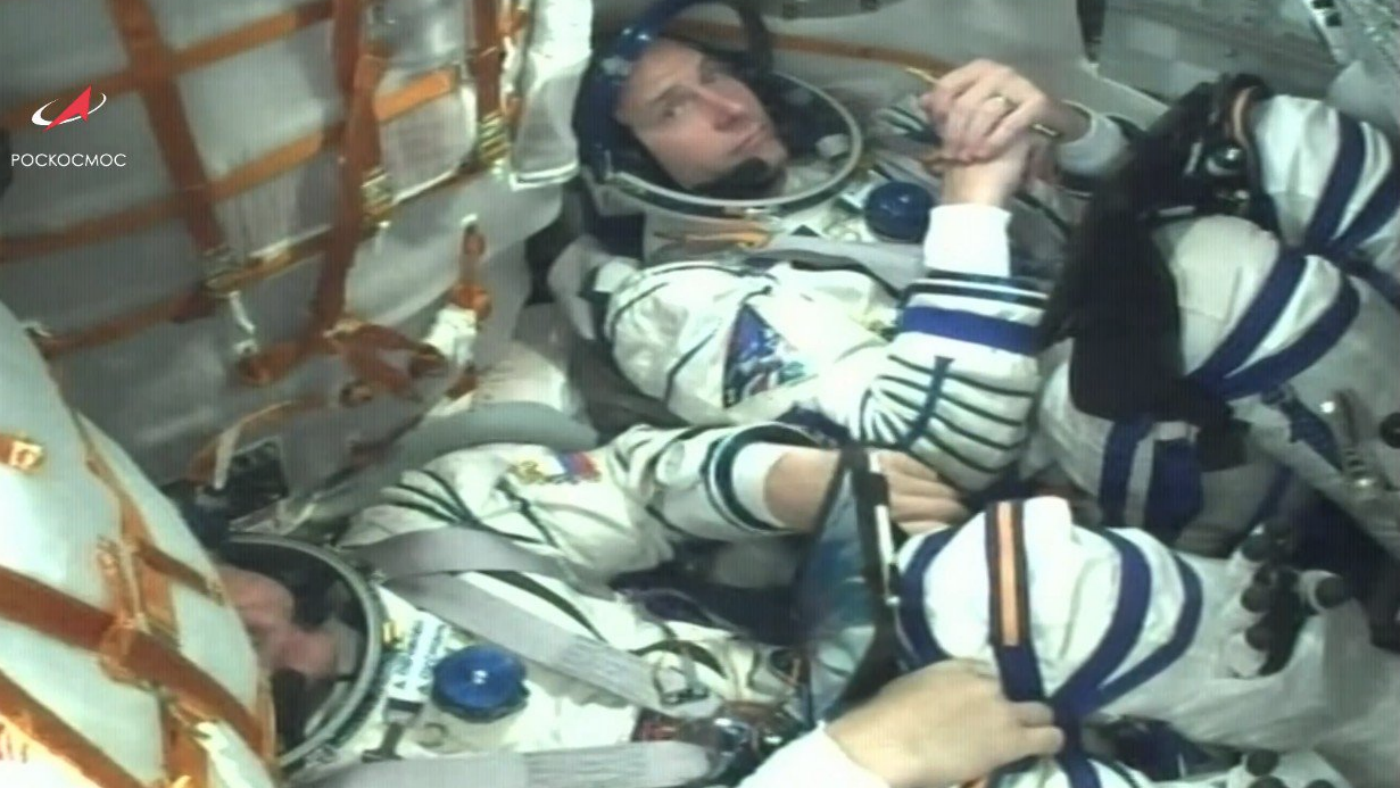Astronauts make emergency landing after major rocket malfunction
Russian and American astronauts said to be safe after emergency landing

A free daily email with the biggest news stories of the day – and the best features from TheWeek.com
You are now subscribed
Your newsletter sign-up was successful
Two astronauts were forced to make an emergency return to Earth after the rocket carrying them to the International Space Station (ISS) malfunctioned shortly after lift-off.
The Russian-made Soyuz rocket, carrying Nasa astronaut Nick Hague and Russian cosmonaut Alexey Ovchinin, launched from Kazakhstan’s Baikonur Cosmodrome this morning for what was supposed to be a six-hour journey to the ISS. It was Hague’s first space mission.
However, around two minutes after lift-off, the spacecraft’s booster rocket malfunctioned. The booster, which usually detaches from the spacecraft in three stages, failed seconds after completing its first stage.
The Week
Escape your echo chamber. Get the facts behind the news, plus analysis from multiple perspectives.

Sign up for The Week's Free Newsletters
From our morning news briefing to a weekly Good News Newsletter, get the best of The Week delivered directly to your inbox.
From our morning news briefing to a weekly Good News Newsletter, get the best of The Week delivered directly to your inbox.
Video footage shows the two astronauts being “shaken around” inside their capsule in the moments after the malfunction, says the BBC.
The crew told ground control they felt weightless, “when they should have been pushed firmly into their seats via the force of the rocket’s propulsion”, says NasaSpaceflight.com.
The failure of the booster forced the crew to return towards Earth in ballistic mode, “meaning that it was falling without propulsion and that its direction was determined only by the craft’s momentum”, the New York Times reports.
In accordance with emergency protocol, the capsule disengaged from the faulty booster and then activated parachutes to slow the capsule as it neared the ground, finally “thumping down in a plume of dust” near Zhezkazgan, Kazakhstan, 300 miles away from their launch point, CNN reports.
A free daily email with the biggest news stories of the day – and the best features from TheWeek.com
A tweet from Nasa confirmed that both astronauts were “in good condition” and had been picked up from the scene of their emergency landing by a rescue team.
But while the pair may have escaped unharmed, their experience will not have been a pleasant one, says the BBC science correspondent Jonathan Amos. The “very sharp deceleration” on the descent would have made theirs “an uncomfortable ride back to Earth”.
Russian agency Roscosmos later tweeted photos of the two men receiving a medical evaluation:
The Russian space agency has announced that it is to form a commission to investigate the incident.
“At present, the Soyuz rocket is the only means of reliably transporting people to and from the space station,” says The Times, meaning today’s aborted mission “could have implications for the crew on board the space station, who were due to be replaced in December”.
-
 The 8 best TV shows of the 1960s
The 8 best TV shows of the 1960sThe standout shows of this decade take viewers from outer space to the Wild West
-
 Microdramas are booming
Microdramas are boomingUnder the radar Scroll to watch a whole movie
-
 The Olympic timekeepers keeping the Games on track
The Olympic timekeepers keeping the Games on trackUnder the Radar Swiss watchmaking giant Omega has been at the finish line of every Olympic Games for nearly 100 years
-
 Epstein files topple law CEO, roil UK government
Epstein files topple law CEO, roil UK governmentSpeed Read Peter Mandelson, Britain’s former ambassador to the US, is caught up in the scandal
-
 Iran and US prepare to meet after skirmishes
Iran and US prepare to meet after skirmishesSpeed Read The incident comes amid heightened tensions in the Middle East
-
 Israel retrieves final hostage’s body from Gaza
Israel retrieves final hostage’s body from GazaSpeed Read The 24-year-old police officer was killed during the initial Hamas attack
-
 China’s Xi targets top general in growing purge
China’s Xi targets top general in growing purgeSpeed Read Zhang Youxia is being investigated over ‘grave violations’ of the law
-
 Panama and Canada are negotiating over a crucial copper mine
Panama and Canada are negotiating over a crucial copper mineIn the Spotlight Panama is set to make a final decision on the mine this summer
-
 Why Greenland’s natural resources are nearly impossible to mine
Why Greenland’s natural resources are nearly impossible to mineThe Explainer The country’s natural landscape makes the task extremely difficult
-
 Iran cuts internet as protests escalate
Iran cuts internet as protests escalateSpeed Reada Government buildings across the country have been set on fire
-
 US nabs ‘shadow’ tanker claimed by Russia
US nabs ‘shadow’ tanker claimed by RussiaSpeed Read The ship was one of two vessels seized by the US military